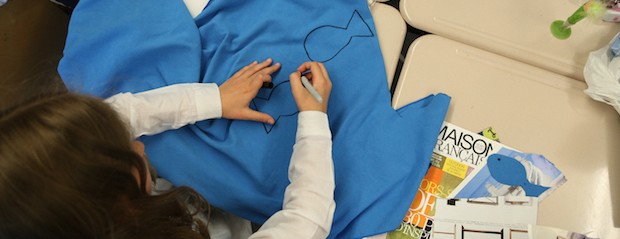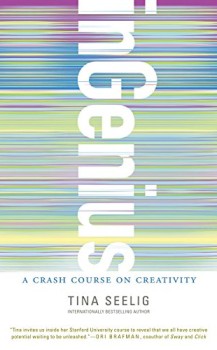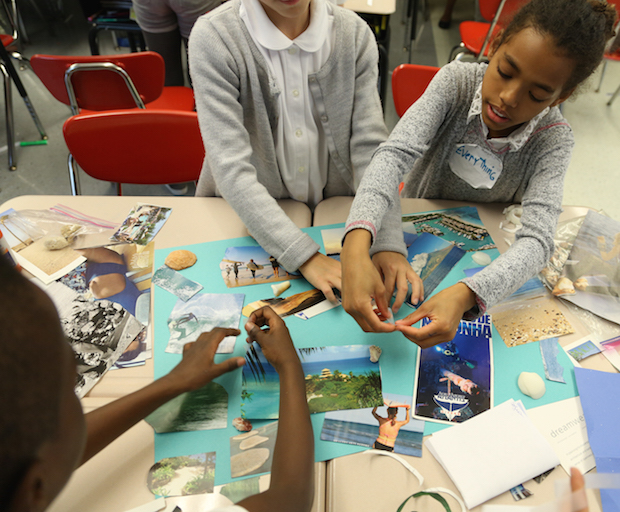Like me, you may have read about last month’s entrance examination at one of the most prestigious and renowned universities in France, where such extraordinary thinkers as Assia Djebar, Claude Cohen-Tannoudji, Jean-Paul Sartre, Aimé Césaire and Michel Foucault once studied: the École Normale Supérieure, the most famous location of which lies in the heart of the Latin Quarter in Paris. The required exam was philosophy; the single examination topic about which candidates were expected to write a six-hour essay was one word: “Expliquer.”*
“Préférer les mots aux coups”
How thought-provoking, n’est-ce pas? A verb in the infinitive form to be probed, explored, discussed, possibly even reinvented without instructions for how to do so. And by the way, not just any verb, but arguably one of the most deeply humanistic in any language. As the French professor of linguistics Alain Bentolilia has written regarding this word: “It would be hard to conceive of a more profoundly human project than that of affording two free minds the choice of understanding and thus of interpreting each other’s words. Is there a more urgent challenge today than that of putting language before blows, explanation before murder, argumentation before barbarism?”
This «Normale Sup» examination is interesting for many reasons, not least among which is the fact that it happens to echo the opening paragraphs of an exceptionally helpful book about creativity I have just finished: InGenius: A Crash Course in Creativity by Tina Seelig, professor of management at Stanford University. “Until recently,” Seelig recounts, “prospective students at All Soul’s College, at Oxford University, took a ‘one-word exam’. The Essay, as it was called, was both anticipated and feared by applicants…The word might have been ‘innocence’ or ‘miracles’…Their challenge was to craft an essay in three hours inspired by that single word.”
The book InGenius: A Crash Course in Creativity by Tina Seelig.
“There were no right answers,” she continues. “However, each applicant’s response provided insights into the student’s wealth of knowledge and ability to generate creative connections…This challenge reinforces the fact that everything-every single word provides an opportunity to leverage what you know to stretch your imagination” (p. 3). Indeed. We who have the privilege of educating the students of the Lycee Francais de New York can only agree. Moreover, we have made cultivating their creativity a strategic priority for our school, as our recently announced strategic plan has reaffirmed.
Cultivating creative thinking and doing
Of course, preparing our students to be the innovators of tomorrow is no small feat. It involves constant improvement of the time and space we attribute to the arts in our school, of the ways in which we cultivate the creative thinking and doing of our young minds across the curriculum, of the outings and other opportunities we give them to take advantage of the concert halls, museums, performance spaces and myriad other forums for imagination and invention that abound in the remarkable city around us. Last, but not least, there is also the artist-in-residence program which the LFNY has established over the last three years, exposing our primary, middle and upper school students to the life and work of a highly accomplished and engaging writer, designer, musician or other artist over the course of a very full week which culminates in the production of a final project by our students under the direction of our inspiring guest.
3rd grade students working on a moodboard themed around the ocean, during the residence of perfumer Céline Barel, May 4-8, 2015.
As members of the Lycee Français de New York community will know, these fields of creativity have been successively theater and perfume-making during the period of the last month, with the residence in our tenth grade classes in April of acclaimed Belgian actor Jos Houben and that in our third grade classes this week of the celebrated French perfumer or “nose” Celine Barel. Suffice it to say that our school has been abuzz with ingenuity. And if I may dare say so myself: École Normale Supérieure and Oxford University should definitely be on the lookout for our students. So too should the world at large, where their burgeoning creativity will surely make a difference!
*French for “to explain.”
About the Author :
Sean Lynch was Head of School at the Lycée Français de New York from 2011 to 2018, after having spent 15 years at another French bilingual school outside of Paris: the Lycée International de St. Germain-en-Laye. Holding both French and American nationalities, educated in France (Sciences Po Paris) and the United States (Yale), and as the proud husband of a French-American spouse and father of two French-American daughters, Sean Lynch has spent his entire professional and personal life at the junction between the languages, cultures and educational systems of France and the United States. In addition to being passionate about education, he loves everything related to the mountains, particularly the Parc National du Mercantour.



